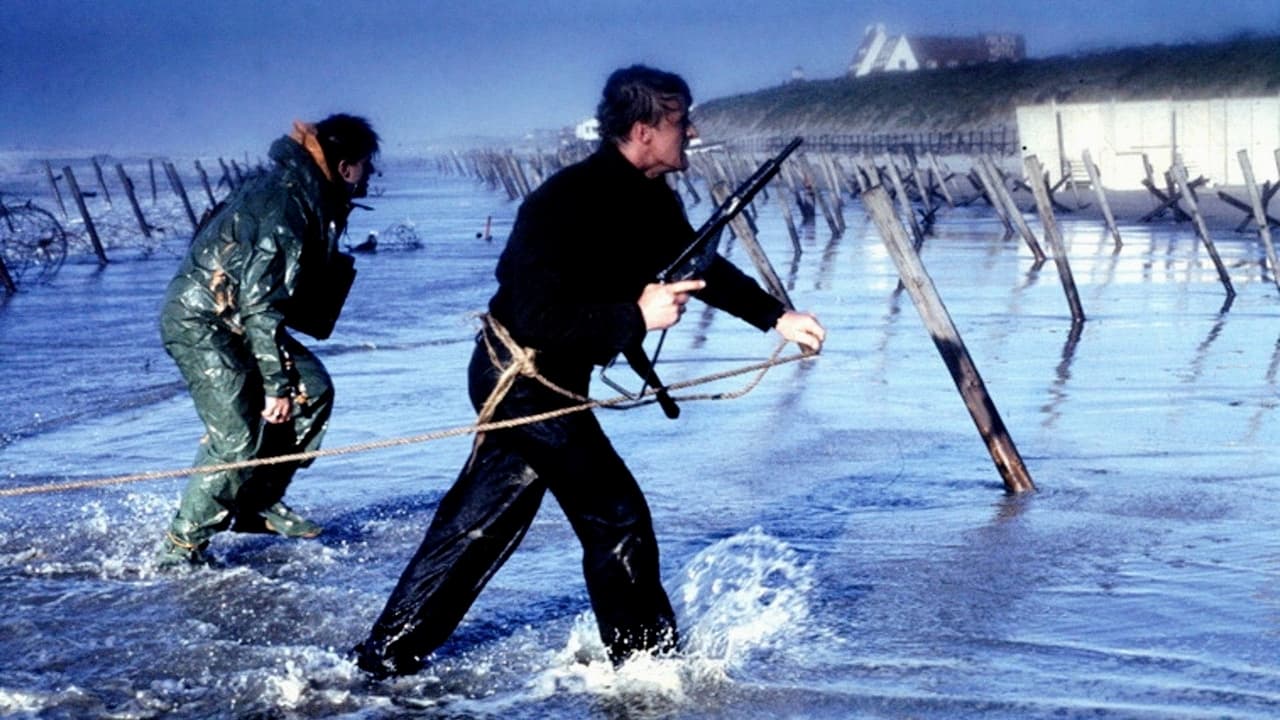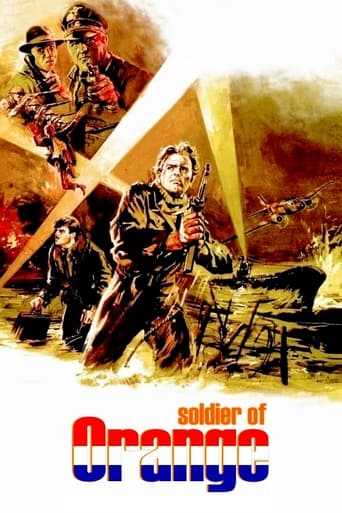

It is a performances centric movie
... View MoreAn Exercise In Nonsense
... View Morea film so unique, intoxicating and bizarre that it not only demands another viewing, but is also forgivable as a satirical comedy where the jokes eventually take the back seat.
... View MoreAll of these films share one commonality, that being a kind of emotional center that humanizes a cast of monsters.
... View MorePaul Verhoeven and Rutger Hauer first joined forces when making 'Floris', a Dutch TV series for kids inspired by ITV's 'Ivanhoe', in the late 1960s. While not remotely as well made as its British forerunner - a recent documentary shows that it was very much learning by doing - the episodes you can now watch on YouTube are quite amusing, given the right age and nationality.'Soldaat van Oranje' (Soldier of Orange) is based on the eponymous memoirs of Erik Hazelhoff Roelfzema, who received the highest Dutch military decoration for his actions during WW II. The book is a ripping yarn, as promised by the title - Hauer, the lead in the film, has called it a 'boys' book'. The fact that it has been turned into a musical as well is another indication that it does not delve deeply into the grim history of the Netherlands during the war.The film does a fairly good job in touching on many aspects of the occupation of the Netherlands, such as the range of attitudes to the Nazi occupation that existed, from resistance via keeping your head down to joining the SS. The Englandspiel , a deadly 'game' played by the Germans with captured Dutch secret agents sent over by the British Special Operations Executive, inspires much of the story. And judging by what we know about her from newsreels, etc., the exiled Queen Wilhelmina (of Orange-Nassau, formally the soldiers' commander-in-chief) with her odd mannerisms is convincingly played by Andrea Domburg.However, those who are unfamiliar with Dutch history of these years will not get all the references; and as the tone of the whole film is Ivanhoe-ish, you wonder why so much effort was put into reconstructing reality. There are also scenes that take outright liberties with wartime reality for thrills, though they can be funny. My favourite is the mild bit of sexploitation in the scenes where a girl shows herself in full-length Eve's costume behind open windows in, respectively, Leiden and London (in both cases she stands on a bed placed, very conveniently, right under the window). There is a nice parallel: in Leiden a clearly amused Nazi collaborator looks up; in London the normally very puritanical Queen tries hard not be somewhat amused.The film's merits are in my opinion greater than that of Verhoeven's much later Black Book. But ripping yarns lose some of their appeal when you know something about the horrors of war (for that reason one of the book's real-life characters actually stayed away from the Hollywood-style gala opening performance of the film in Amsterdam).I keep wondering whether the starting point of the film could not also have been a starting point for a war film that digs deeper. The type of student fraternity initiation rite shown in the film was common until the 1960s, and this species of adolescent sadism has never gone away completely. Maybe because it does lead to bonding (as I know from experience); but you might be excused for seeing uncomfortable parallels between the pandemonium and the shaven heads of the new students and what happened in Nazi camps: an Amsterdam student fraternity actually had 'Dachautje spelen' ('playing little Dachau') on its initiation programme, during which people are known to have fainted. Later in the film Dutch WA-men (uniformed Nazis) dump a Jewish peddler's handcart in a canal. Is there no link between their playful sadism and 'Dachautje spelen'? Camps similar to Dachau were the peddler's destination. Why do people take things out on those who are weaker, where does the contempt for other human beings come from (which resulted in the murder of over 100,000 Dutch Jews)? But a film exploring those questions might not be a box office success.
... View MoreI was told by a Dutch priest friend that his country's soldiers responded to the German invasion riding on bicycles. And they were confronted by Panzer divisions. Apart from the films about the Ten Boom family and their heroic exploits in saving Dutch Jews from the death camps (e.g. The Hiding Place), there are few cinematic efforts portraying Dutch resistance against the Nazis. Soldier of Orange was therefore an eye-opener. One would have thought that the Dutch, because of their proximity to Germany, with their cognate languages would have succumbed to Anschluss as did Austria. The stoic courage of Queen Wilhelmina in insisting on staying with her people even after it was clear that Dutch forces had collapsed in the face of the German Blitzkrieg was touching. Only reluctantly did she accept the advice of her ministers that she would be more effective as a symbol of resistance abroad persuaded her to accept the British offer to fly her out of her beloved country.And yet, despite the exciting episodes of Dutch resistance and espionage against the German occupiers, what proved more interesting to me was the depiction of student life at the universities. I was both fascinated and appalled at the extent and brutality of the hazing undergone by the lower classmen which included the character of Rutger Hauer. In my country, the Philippines, such hazing have led to several deaths and although condemned in general, they go on.
... View MoreWhen I talked to Erik Hazelhoff (1917) today, he was staying in De Hoefslag, one of the more remarkable dutch hotels. A man who has sucked the marrow out of life; a student writer warrior and bon-vivant who has retired to Maui, Hawaii. He remains today one of a handful of surviving bearers of the Dutch equivalent of the Congressional Medal of Honor and Victoria Cross, the so-called Military Willemsorde (MWO). With seventy two pathfinder sorties over Europe, multiple warship droppings on the machine gun patrolled dutch beaches, he is a lucky man to have survived the Second World War. The movie is fresh, candid like the man himself. It shows the When I talked to Erik Hazelhoff (1917) today, he was staying in De Hoefslag, one of the more remarkable dutch hotels. A man who has sucked the marrow out of life; a student writer warrior and bon vivant who has retired to Maui, Hawaii. He remains today one of a handful of surviving bearers of the Dutch equivalent of the Congressional Medal of Honor and Victoria Cross, the so-called Military Willemsorde (MWO). With seventy two pathfinder sorties over Europe, multiple warship droppings on the machine gun patrolled dutch beaches, he is a lucky man to have survived the Second World War. The movie is fresh, candid like the man himself. It shows the naiveté with which the Dutch resistance operated as well as its heroism. It shows Germans sometimes as soldiers, sometimes as murderers. It shows "wrong" Dutch as patriotically volunteering SS-soldiers. The best and the worst and everything in between. Is shows the Second World War as it was for everybody of his generation: the biggest event of their lives. Erik Hazelhoff Roelfzema rose to the event and this movie with its captivating theme has enshrined it during his lifetime.
... View MoreThis film hit a grand slam by successfully achieving all of the things I hope for in a movie: it entertained me, it educated me, it charmed me, and it provoked me. I have lived in the Netherlands and love the Dutch people, so I was happy to view this film and see many familiar sites and understand some of the Dutch dialogue. It provided me with a sense of deja vu. I also learned things about the Dutch World War II experience that I previously was unaware of. The vast majority of the world only has one thought when it comes to WWII and the Dutch: Anne Frank. It's heartening to watch a film that explores many other facets of the Dutch experience during occupation, and that doesn't promote an all-rosy view wherein everyone is heroic. It is a realistic film that showed the complications of war and occupation, the desire for self-survival, the limits of patriotism, the fragility of war-time romances, and the bravery and sacrifices that some, but not all, are willing to exhibit. My heart was in my throat many times as I wondered what would happen and, although the movie is almost two and a half hours, I was sorry to see it end.
... View More